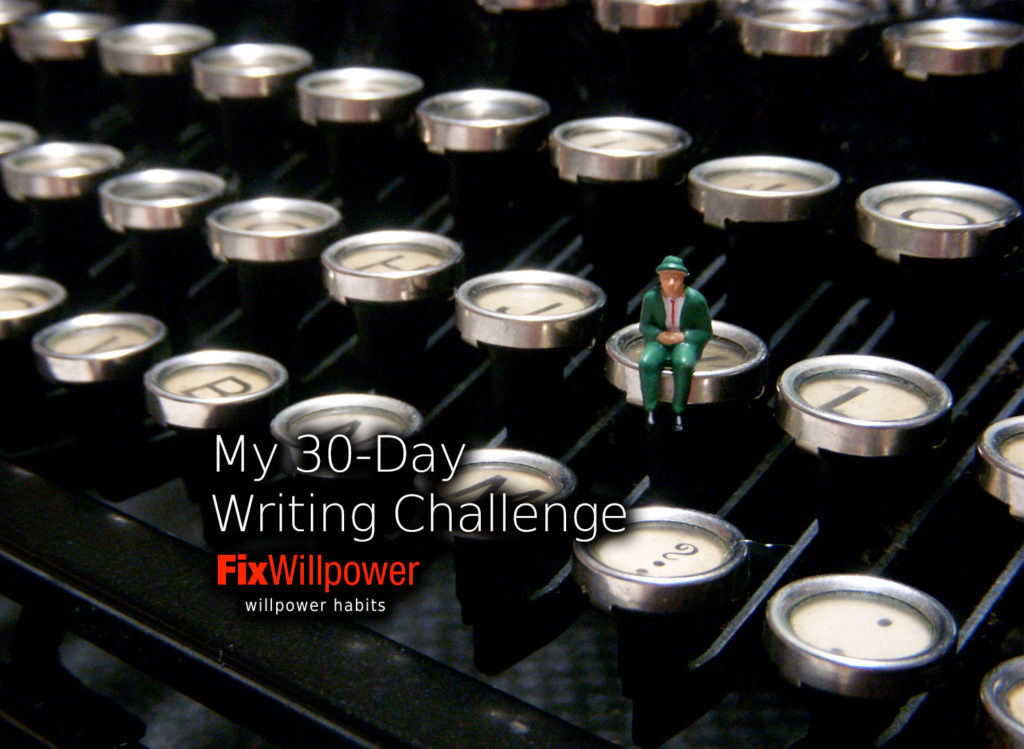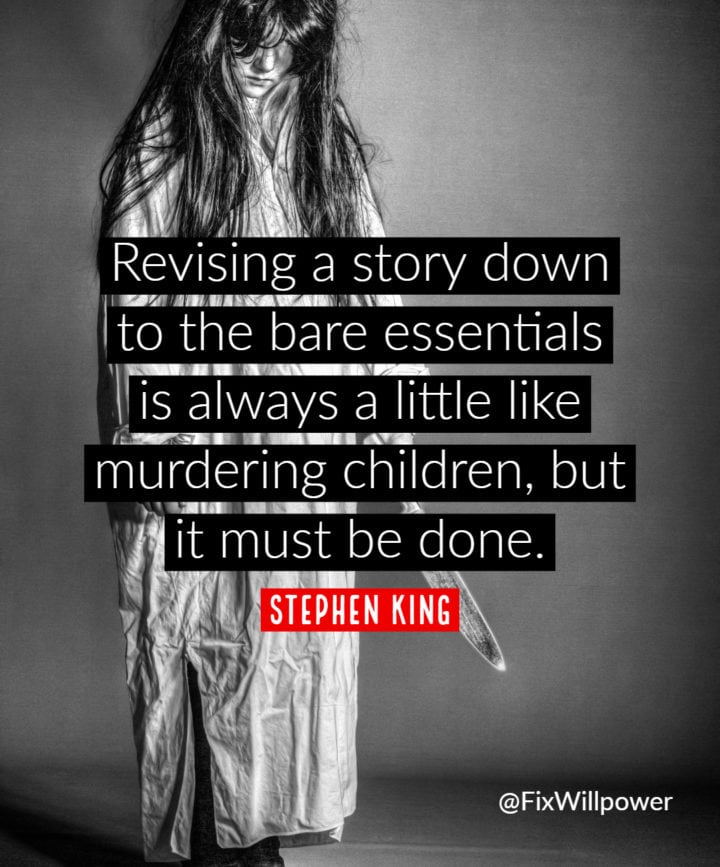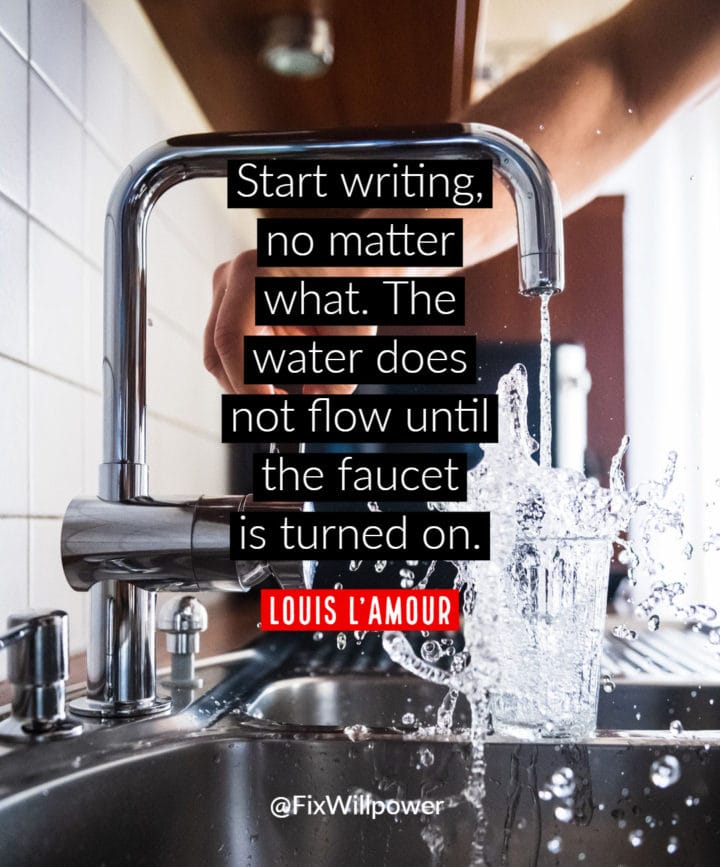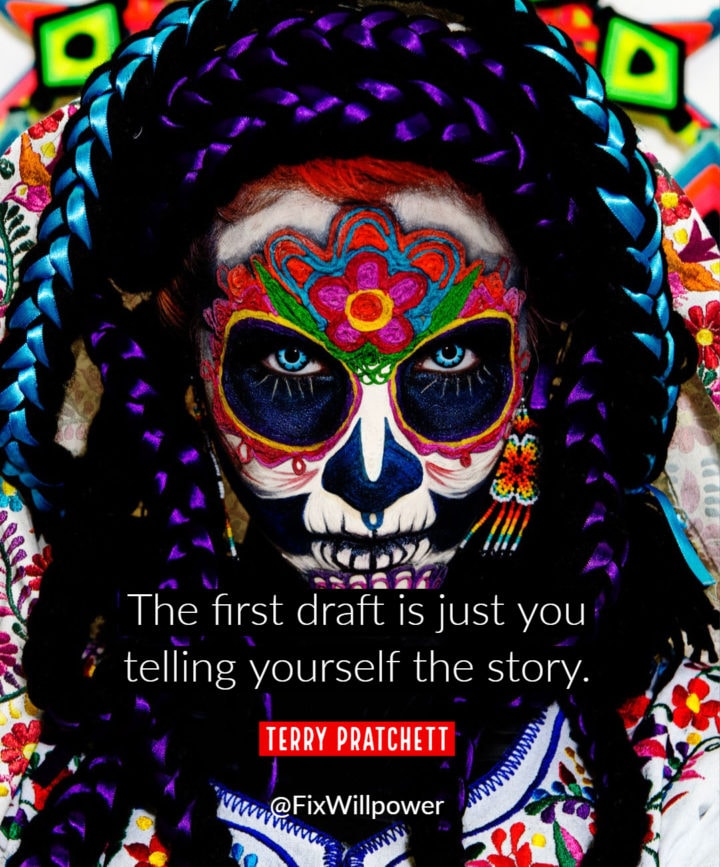Do you want to become a better writer? Here’s a writing challenge to help you.
But why?
Most of the output creative people produce is information. Often that output starts with writing something.
The daily writing habit would be useful for most of us.
Here’s how you can build your daily writing habit.

Even if you don’t want to be a writer, writing every day is a superpower that helps you think deeper and be more creative.
To get that superpower, I decided to take a 30-day writing challenge.
Read what I learned when I first started the challenge and how to get through it.
Some time ago, I wrote about the 30-day challenges. Later, I successfully completed two 30-day challenges. One was in February and consisted of me changing my behavior. It was relatively easy as I just didn’t watch TV. The second was a lot harder, daily writing.
What I Learned from the 30-Day Writing Challenge
-
- 30-Day Writing Challenge Rules
- What to Write About
- What Do You Have to Say About Your Topic
- List of Activities That Go into Writing
- Get the Content Writing Checklist
- Decide What Are The Parts of the Writing Challenge
- Grind: Day After Day
- Ideas: One Topic or Random Thoughts?
- Publishing to Get Feedback
- Time? A Lot!
- Family and Other Obligations
- Editing is a Superpower
- What Did I Get Out of the Challenge
30-Day Writing Challenge Rules
In the middle of April, I decided that for the next 30 days, I will write a post about how to improve your life. I wrote the first post on Saturday, April 20. Talk to People and Solve Your Problems was 247 words, and everything seemed easy.
As I progressed through the challenge, I created rules for myself.
How long? Minimum 2000 characters, no spaces. 2000 characters mean approximately 300 words.
Every post had to have a nice image. Or two images when I used a quote from someone famous. It took a lot of time to find those images.
I had to get the post in such a shape that I felt it is OK to publish it. And of course, the original idea to write about something people can do to make their lives better started to set limits on the topics I could write about.
A lesson here is to break your challenge into sub-components. If you are trying to improve your writing, then focus on writing and leave all the other activities for later.

You can make anything by writing. ~ C.S. Lewis
My challenge became more of a “publish a blog post every day” challenge.
When you are just starting, focus on one thing you want to improve most.
Read about how I built my daily writing habit.
What to Write About?
First, I had to find something that would help people. Sure, there are a lot of posts titled “XX things to improve your life right now,” but most of them have about one sentence or paragraph for each item. I had set myself a minimum limit of 2000 characters per item (no spaces).
Finding a theme for your writing is important. It’s a lot harder to stick to a theme than write on random topics. That’s why you call it a writing challenge.
What do you have to say about your topic?
Second, I had to have something meaningful to say about the topic. Coming up with the substance proved to be a real challenge.
If you are an expert in some field, then that would be a great topic. But if you are not, then writing about your take or experiences about the topic is a good way to go. Sometimes, I didn’t have the experience on the topic.
Third, I made myself another rule to back up everything with science. That led to hours of Google searches I had to do to write on a certain topic.
Again, references and substance make your writing stand out. Thinking through what you write will increase the value you get out of the whole challenge.
I am a slow writer. On a good day, I can write about 3000 characters per hour. The writing task includes time for thinking and rewriting on the fly.

I write to discover what I know. ~ Flannery O’Connor
Here’s a blueprint for writing that should get you going
- Think about three things you want to say about the topic.
- Write a few sentences about why this is an important thing about this topic. Repeat for all three things.
- For each of the three things, write what would happen if they wouldn’t exist or something opposite would be true.
- Write why the reader should care about each thing and what’d your position.
- Write a short intro about what you will talk about and why it’s important to the reader.
- Write a summary, reiterating the value the reader should take away from this.
You can use that formula on almost anything you want to write about. You can tweak the steps 2 through 4 to match your specific area.
List of activities that go into writing challenge
So, to sum it up, my 30-day writing challenge had expanded to the following activities:
- Researching
- Writing
- Editing
- Finding images
- Editing images
- Posting to WordPress
- Linking to related content
All those activities took an amazing amount of time out of my day. Now is probably a good time to thank my better half for putting up with all of this.
Thank you!
Get the Content Writing Checklist

When your story is ready for rewrite, cut it to the bone. Get rid of every ounce of excess fat. This is going to hurt; revising a story down to the bare essentials is always a little like murdering children, but it must be done. ~ Stephen King on writing
Decide what are the parts of the writing challenge
Now, after countless hours spent on my 30-day writing challenge, here are some lessons I learned.
Grind: Day After Day
Every day, just do it!
No matter what, just hammer away at the keyboard. Don’t break the task up into different parts of the day, or you will spend a lot more time on it in total.
And the key is to develop a daily writing habit where you take time to write in one session. You can later expand it to have many writing sessions in your day.

Start writing, no matter what. The water does not flow until the faucet is turned on. ~ Louis L’Amour
Ideas: One Topic or Random Thoughts?
I accidentally set myself up for harder than expected task when I decided to write on a specific topic. Fixed topic limits your options and requires a lot more time for researching and coming up with a decent topic.
I suggest that you write something that needs effort. Free-flow writing is almost effortless as you write what bubbles up in your mind. Focusing and writing meaningful content will build the writing habit and your brain.
Publishing to get feedback
However low your standards, if you decide to publish, you will have to work a lot harder on on your writing. For me, something I write for a public blog post has to be a lot better than a draft in a forgotten folder on my hard drive.
If I would do it for the first time, then I would focus solely on writing. Publishing daily is a huge task and may derail your 30-day writing challenge.
Time? A Lot!
Know how fast you can find new ideas.
How fast do you write?
How much time do you need for thinking while writing?
Set your targets for the challenge accordingly, or you may end up spending a lot more time on the task than you expected. You may set a time limit for different activities (15 minutes research, 30 minutes writing, 10 for editing). Do not start any other time-consuming activities during the period of the challenge.
The good thing is that as you progress, you will become a better and faster writer.
You don’t start out writing good stuff. You start out writing crap and thinking it’s good stuff, and then gradually you get better at it. That’s why I say one of the most valuable traits is persistence. ~ Octavia E. Butler
Family and other obligations
The time has to come from somewhere. Tell your family or colleagues (you may do this professionally) that you will take X amount of time for the next 30 days for writing come hell or high water. The notice may keep you from a lot of misunderstanding later.
Your challenge will take one hour a day.
Don’t make it longer than that, or it becomes hard to sustain.
If you know what you are doing, then you can put more time into your challenge, depending on what you want to achieve. If you write for business, then the time may be a part of your regular workday. If the time is an extra activity, schedule time for it.
Editing is a superpower
I wrote all the content during the 30-day writing challenge on the fly. Writing from the hip leads to:
- inconsistencies,
- writing about the same thing in a different way,
- errors in the flow of thought.
To avoid low quality, write the post and then edit after 24 hours. Editing after 24 hours is one of the best pieces of advice about writing I have ever had.
I didn’t use it.
Make sure you do!

The first draft is just you telling yourself the story. ~ Terry Pratchett
What did I get out of the writing challenge?
- Better ideas,
- faster thinking,
- deeper thinking,
- faster writing,
- clarity of mind.
I am a better writer now than I was before the 30-days challenge. It is totally worth it. I have a much deeper understanding of the topics I wrote about. Writing for others makes you really dig in and familiarize yourself with the material.
At the beginning of the writing challenge, I sometimes struggled to come up with ideas. I wrote a lot of random free-flow material just to exercise my idea muscle. Now I can always come up with something to write about.
Writing is also deep thinking. Slow thinking helps you go deeper into the subject and internalize the concepts. Now that I write every day, I sometimes write about the topics I want to understand better or the decisions I have to make.
So, here you go. This post is 1998 words, 9042 characters (no spaces), and 10984 characters (with spaces). It took me 145 minutes to write this post and 56 minutes to find images, edit, and publish the post to WordPress.
If you want to improve your life, then there’s another 30-day challenge to simplify your day.
Start your 30-day writing challenge
Now it’s your turn.
Start a writing challenge that could turn into a lifelong daily writing habit.
- You’ll become a faster writer.
- You will express yourself better.
- Your thoughts will become clearer.
- You will become an idea machine.
- You increase the willpower that you can use in any other area of your life.
Now, I celebrate.
If you want help, I put together a 30-day challenge that gives you prompts and helps you stay on track. 30 days every day is quite intense, but you can probably do it. Sign up here.
_________________________
Image: The Anxious Type by JD Hancock

![Read more about the article The First 20 Hours: How to Learn Anything, Josh Kaufman [VIDEO]](https://fixwillpower.com/wp-content/uploads/the-first-20-hours-how-to-learn-anything-429x314.jpg)
![Read more about the article How to Increase Willpower and Determination to Get Massive Results [VIDEO]](https://fixwillpower.com/wp-content/uploads/2018/07/increase-willpower-429x314.jpg)
![Read more about the article What are the Most Important Things in Life? [2025]](https://fixwillpower.com/wp-content/uploads/important-things-in-life-429x314.jpg)